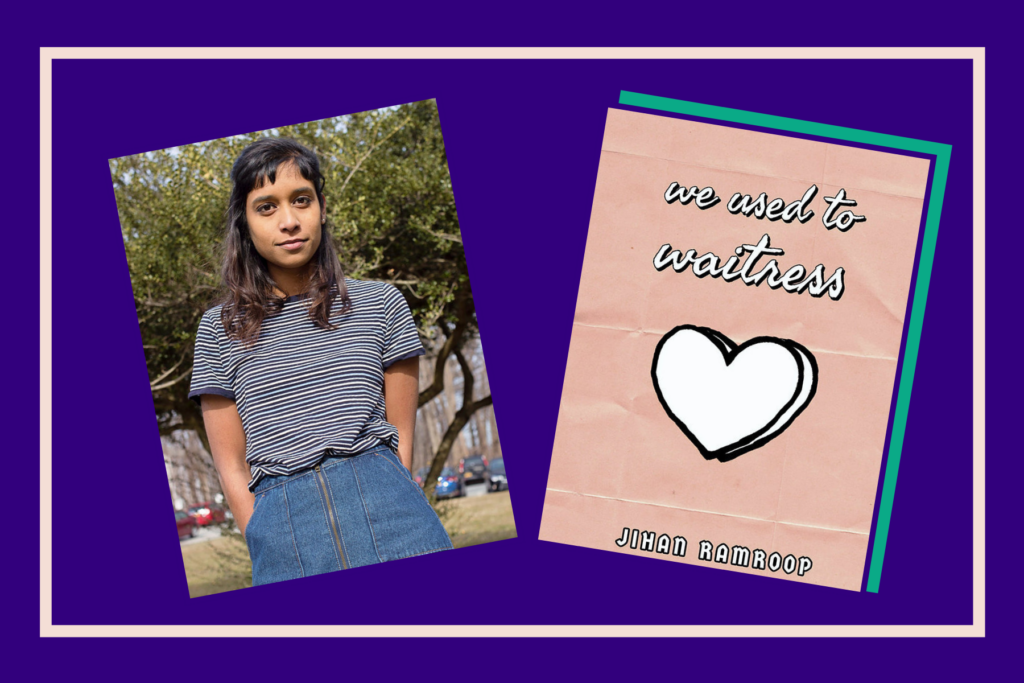
Jihan Ramroop photographed by Em Hampton
A Queens, New York native, Indo-Caribbean poet Jihan Ramroop takes us on a journey of culture, identity and womanhood in her debut poetry collection, “We Used to Waitress.” The collection relives Ramroop’s journey as an Indo-Caribbean girl growing up in America and touches on the depths of good and bad human experiences.
Before Ramroop introduces the table of content, she lets readers know the content includes alcohol, anxiety, cancer, colonialism, death, depression and much more. With that in mind, I decided to dive into the reading, cautious of the depths of each topic.
The collection is divided into four parts: Stay, Still, Stubborn and Suppose. From alcohol to anxiety to depression, the memoir showcases the depths of generational trauma to healing, a topic many brown girls could understand on a personal level.
[Read Related: Confessions of a Bipolar Indo-Caribbean Woman]
The parts build off of Ramroop’s emotion. Dark places and victorious moments captivate readers. We experience Ramroop being vulnerable and unapologetic. With the various use of writing stylization from uppercase to lowercase sentences to sentences with no space, the author evokes the feeling within the readers to understand the anxiety she has felt. Such a unique writing style allows the reader to step away from the traditional idea of what poetry is to what poetry could truly express.
As I read through each part, one poem titled, “let abee call it inheritance” (let us call it inheritance) particularly stood out to me. The poem reflected the struggle of Indo-Caribbean identity and the hardship between keeping traditions alive or starting anew. Again Ramroop’s writing style, seen when she crosses out the word, emphasizes the internal struggles the Indian diaspora has placed on many people in determining who they are, which is still prevalent to this day.
let abee call it inheritance
if I had to write a song for you
i wouldn’t know where to start because i feel like you’ve
been thru some shit
i couldn’t even know about
like i’m sorry that
you grew up oh so fast
i guess those were
are still the times
and i’m sorry that you had to
fall in love so quick
it wasn’t love
or was it?
and how did you find the strength
to travel across the pani?
from east to west
you became different
yet still the same, my rani
now outsider in your own skin
find a new place to start again
call you “not real Indian”
foreign language taste
on your lips
yet still yet still
you continued
despite it t’all
brown and white man
eye pass it call
still made something
out of nothing
kept tradition and
forged a new one
if i had to write about you
i would include all these things
how you’re so stubborn
so resilient
passed to your daughters
this gift
let abee call it
inheritance
Overall, this poetic collection touches on cultural identity, human struggle and womanhood. The meaning behind the title portrays that brown girls are much more than any negativity surrounding us. Ramroop’s tone sends the message that brown girls should put themselves first and take the time to realize self-worth. “We Used to Waitress,” is a great body of work and is a must-have in every brown girl’s collection of great reads.




